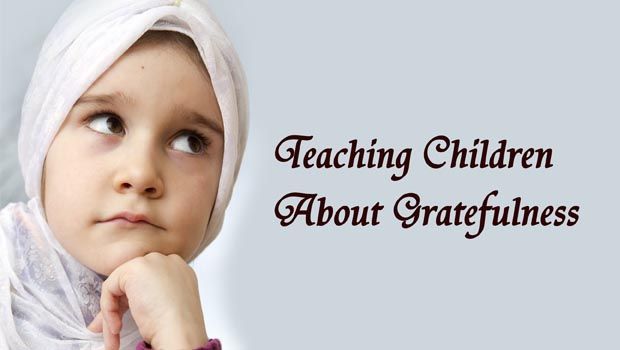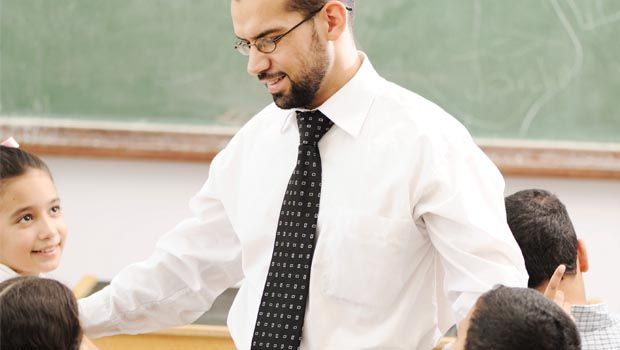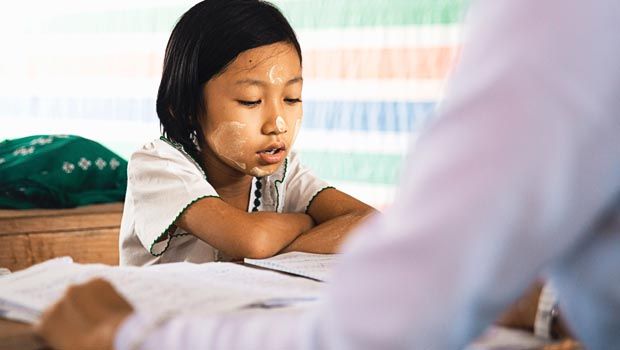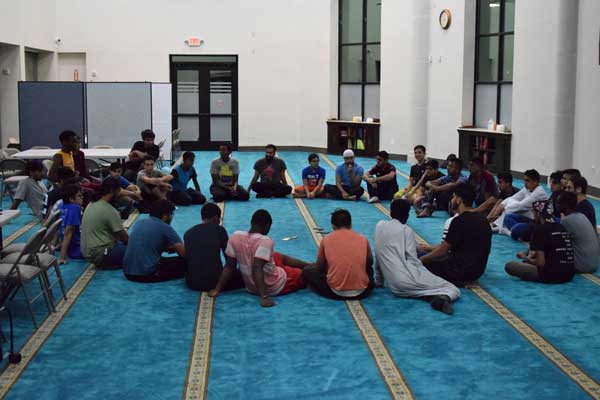In a world where the worst behavior is often celebrated, where rudeness, immodesty, and lack of caring about others are too commonplace, it is beneficial to reflect upon the beautiful hadith of our Prophet Muhammad (peace be upon him): “The best of the believers is the one with the best manners” (Bukhari).When we speak about manners, we mean socially acceptable and appropriate behaviors such as respect, compassion, and caring for everyone, in alignment with the teachings of Qur’an.
With belief, what greater gift can we give them?
To say that we believe in the Message of the Qur’an is one thing. But only the one who is thankful, pleased, and appreciative of that Message —filled with gratitude — will strive to live his or her life consistent with the manners, virtues, and values of true belief. The Qur’an says about the essential value of gratitude:
“Then remember Me; I will remember you. Be grateful to Me, and do not reject Me” (2:152).
“…and be grateful to Allah, if it is Him you worship” (2:172).
“…This is by the grace of my Lord! —to test me whether I am grateful or ungrateful! And if any is grateful, truly his gratitude is for his own soul; but if any is ungrateful, truly my Lord is free of all needs, Supreme in honor!”(27:40).
“And remember! Your Lord caused to be declared: ‘If you are grateful, I will add more (favors) unto you; but if you show ingratitude, truly My punishment is terrible indeed’” (14:7).
We deduce from the above verses that success and happiness come from being truly thankful. Varied research conducted over the decades also indicates that grateful people lead happier and more optimistic lives. For this virtue —thankfulness — to be ingrained and inherent in every Muslim, it is of utmost importance that it be taught from a very tender age. The Qur’an and the life of our Prophet Muhammad (peace be upon him) provide the best guidance, revealing how we can help our children grow into adulthood with established values of gratitude and contentment, a baseline for a happy and fulfilled life.
This article explains the stages in the teaching of thankfulness to children based on the principles of the Qur’an and Sunnah. The teaching and learning journey begins in the lap of the parents and extends throughout the childhood years. The stages of this process are categorized in the following way: 1) role modeling; 2) guided practice; 3) independent practice; and 4) review and assessment. However, it must be remembered that these stages are flexible and to be adapted to the learning capacity of the child. Therefore if there is a need at times to revert back to a previous stage in the sequence, that is perfectly acceptable.
Role Modeling
This stage that begins in the lap of the mother is extremely important as young children are very impressionable. The way we speak to, speak about, and most importantly, behave—responding with maturity or reacting out of impulse and ego—toward different people and situations in our lives, that our children are watching. And, without doubt, children copy their parents’ behaviors. To inspire positive behaviors in our children, we as parents have to be inspired by an exemplary model— Prophet Muhammad (peace be upon him). Allah describes Prophet Muhammad in this way: “And thou [standest] on an exalted standard of character”(68:4). “Ye have indeed in the Messenger of Allah a beautiful pattern [of conduct] for any one whose hope is in Allah and the Final Day, and who engages much in the praise of Allah” (33:21).
To teach through role modeling the trait of thankfulness, we must embody that trait. We can express out loud our gratitude to Allah SWT by saying alhamdulillah when things are going well, and especially when we are frustrated or stressed. This illustrates to our children throughout our daily living that we remember the many bounties Allah SWT has bestowed upon us. Imagine a situation in which a parent feels impatient, frustrated, annoyed, or pressured and reacts by cursing or blaming or yelling or any other form of out-of-control behavior. Now imagine a situation in which a parent, feeling the same stressors, instead says out loud in front of the child, “Alhamdulillah, I feel really frustrated [or annoyed, angry, sad, resentful, etc.] but this is the perfect time to practice being patient [or forgiving, understanding, tolerant, etc.]. Let me breathe deeply and settle my emotions and then I’ll see how best to deal with this.” The contrast is a simple but powerful lesson about how our own traits of character, our speech and behavior as role models, teach our children in the most direct and influential way. Just as important is that we thank others, particularly our spouses and our children when they have done something good or caring or generous. We should also express gratitude on a regular basis for the good things provided to us, for some simple pleasure or comfort, for the beauty of nature, for loving relatives and good friends, and so on. Children are much more likely to feel that way themselves if the parents have been a good example of thankfulness in its endless variety of expression.
Of course, embodying gratitude must be accompanied by other virtues such as compassion. We observe from the life of the Prophet Muhammad (peace be upon him), the emphasis laid on showing compassion to children. Anas ibn Malik (may Allah be pleased with him), a companion of the Prophet (pbuh), narrates: “I never saw anyone who was more compassionate towards children than Allah’s Messenger. His son Ibrahim was in the care of a wet nurse in the hills around Madinah. He would go there, and we would go with him, and he would enter the house, pick up his son and kiss him, then come back” (Muslim)”
Children who are nurtured in a loving environment develop confidence and optimism, essential ingredients in the recipe for an approach toward life that is positive, hopeful, and open to experiences that bring greater self-awareness and affirmation. All this induces in the growing child a sense of gratitude. An important part of this is appreciating positive behaviors in our children. Ibn Abbas (may Allah be pleased with him) narrates: “One day I prepared some water in a pot so that the Prophet could perform ablution. When the Prophet saw the pot, he asked who had prepared it. Once he learned that it was me who had prepared it, he prayed for me, ‘O Allah! Increase his understanding in religion’” (Bukhari).When a child receives appreciation and encouragement, s/he will no doubt be motivated to do more good, to feel the satisfaction of having done his or her best, and to be thankful for the opportunities to build a good and fulfilling life.
Guided Practice
Guided practice is a teaching technique by which the child is guided by a parent or mentor to work on specific skills or traits, to gain experience through practice in a particular area, all under the watchful eye of the adult. A simple example would be a family sitting together after salat and one of the parents suggesting that they spend the next week focusing on a particular trait. It could be gratitude or patience or kindness or whatever they decide for the first week. They could, together, come up with their own creative guidelines. They could, for example, decide to express gratitude to various other family members at least five times (or any other number of times) per day. They could also stipulate that if a family member did something for them and they forget to say “thank you,” that the giver could say nicely “alhamdulillah” as reminder to the receiver to express their gratitude. The way a family might structure this exercise is completely open-ended and great opportunity for creative ideas and family bonding. Remember to keep the exercise positive and affirmative, never presenting it as a harsh duty or using the exercise to criticize or reprimand.
There are countless other forms that guided practice can take. A mother, for example, can tell her four-year-old child that they will practice gratitude together on their daily walk through the park. They can each find one thing in the natural setting or share one positive thought about something for which they are grateful to Allah SWT. This can become a satisfying routine that beautifully bonds the parent and child in a shared exercise in gratitude.
Independent Practice
The process of developing cognitive, emotional, and social skills continues throughout childhood and into the teenage years. It is a precarious phase in the life of the child when s/he is moving into young adulthood and is afforded the opportunities to make decisions, handle hard situations, choose where to focus their academic and social attention, and behave in ways that show commitment to the boundaries and values they have been taught.
In other words, the child will now demonstrate whether or not he or she is able and willing to display and execute self-regulating skills. Let the teen know in no uncertain terms that the ability and commitment to being a self-regulating young adult — demonstrating self-restraint where needed, gaining ever greater awareness of and ability to express their emotions, and handling their relationships in a positive and caring way — are, at bottom line, a demonstration of their gratitude to Allah SWT for the bounties and opportunities He has provided them.
What parents need to know during this stage is the importance of staying connected emotionally with the teen, monitoring their activities and behaviors and social interactions enough to maintain control and ensure the teen’s safety and propriety; while at the same time, always deepening the bonds of trust by letting the teen explore, move out of his/her comfort zone, and take appropriate and affirmative risks to enlarge their sense of self and willingness to engage in the world. This is how they find their own happiness and fulfillment while contributing to the common good.
Again, with gratitude in mind, parents can encourage their teens to engage in good deeds, be it to help in a soup kitchen, run errands for an elderly neighbor, or participate in a street cleaning project. They may choose to join a debating club at school or run for class president so as to utilize the talents and gifts Allah SWT has bestowed upon them. This is also a form of gratitude. Let them know they can come to you with any problem, discuss any difficulty they are facing — they can lean on you when necessary — but that you want them to make decisions while still consulting you for guidance. The parents set limits while providing space, redirect and facilitate their way when the going gets rough for the teen, rather than criticizing them. Ensure them that you, the parent(s), are one hundred percent behind them, supporting them, and cheering them on. This strategy builds confidence and confidence breed happiness and optimism.
Review and Assessment
When children can navigate through life’s challenges with confidence and resilience, they become happy individuals who are optimistic and, very likely, thankful for all the good things in their lives. The significance of review and assessment throughout the child’s growth and development lies in the important practice of self-examination and reflection on the goals we strive for and how well we are doing in that process. In general terms, as Muslims we are blessed with numerous opportunities to review and reflect on our behaviors and actions. The month of Ramadan is a very special and blessed month in the Islamic calendar and we must seize this opportunity to check our teaching while encouraging children to enhance their capacity to do good, establish or amend behaviors and seek the blessings of Allah. A practical example of review and assessment is the family mentioned above who together decide to practice a particular trait for one week (or it could be for one month). After that period of time they could again sit together after prayer and share their experiences, give each other feedback (and it must always be constructive feedback, expressed in a loving way even if it is pointing out some deficit), and hone their exercise guidelines with further collaboration, brainstorming, and creative suggestions.
We can also teach our children to spend ten minutes each night before sleeping to review their day’s activities, to reflect upon the things that worked well and to commit to improving in areas where they fell short. This, of course, must be done with the cognitive and emotional level of maturity of each individual child in mind. And this should be presented and taught to the child with a positive attitude, explaining how this helps them to acquire greater awareness and understanding of self. And we must make sure they understand that the development of self is a life-long, gradual process. Patience is required of us as the parents/teachers, and patience is required of the child as she or he strives to become the best human being they can possibly be. The Qur’an emphatically states about patience: “O you who believe, seek help through patience and prayer. Indeed, Allah is with the patient”(2:153). This necessitates that, as adults, we need to practice the virtue of patience consciously and with conviction. By embodying the virtues including tolerance, forgiveness, patience, kindness, compassion, and gratitude, we are providing our children with the greatest chance to dedicate their time and energies so that those qualities become imbued in their own lives. With belief, what greater gift can we give them?





